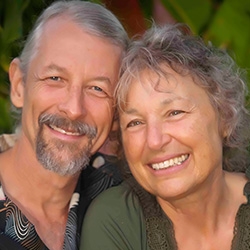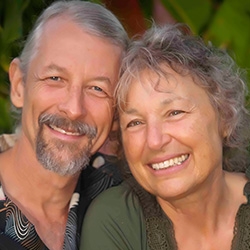

NVC Resources on Groups
-
Expressing ourselves honestly is sometimes scary because we can't predict where the conversation will go after we've made ourselves vulnerable. This recording will demonstrate how the power of our honesty is enhanced by ending on a clear and present request.
-
What is it that enables us to thrive? How can we influence our capacity to live a meaningful and fulfilling life? Join Jim and Jori Manske in this exciting telecourse recording on the intersection of NVC and cutting-edge Positive Psychology, the science of human thriving.
-
Conflict is a normal and natural part of life. To varying degrees, it happens whenever two or more people consistently spend time together. Resolving conflict effectively and peacefully, in a way in which all parties feel respected and valued, does not feel natural for those of us who grew up with punitive, adversarial, or avoidant approaches to conflict. Eric offers some tips for approaching conflict.
-
Trainer Tip: Our inner critic judges ourselves and other people; and it is the most likely to get scared when we begin to make a change. It holds wisdom for us if we are willing to listen. When we acknowledge our inner critic and empathize with its need, we gain insights into ourselves and we clear the way for resolution.
-
Trainer tip: Do you have behavioral patterns that block intimacy? When we are feeling our most vulnerable, we often want intimacy but also tend to keep it at bay. Acknowledge your need for intimacy, and find people you can trust to love you as you are.
-
Dialogue is a life-changing, heart-opening experience. It’s collaboration instead of compromise. Join Miki Kashtan for a practical, step-by-step framework to help you understand how a community develops, how to maintain or repair a community, and how this unique process creatively supports you and each member of your community in getting things done.
-
Self-compassion is essential for healing trauma and restoring your wholeness. It is also an antidote to reactivity and separation, allowing presence to emerge.
In developing presence, you can become what the world needs most in these times of intensity and chaos. This work can strengthen your skills to be more fully in relationship with all that life offers while allowing your heart to be moved by what is alive in you and with others
-
When your dedication to something is fueled by a profound intention to benefit all life, you may call it your spiritual practice. This means cultivating compassion, wisdom, and skills to notice what truly serves life. Its a discovery and experiment in what does and doesn't serve life, and what you can do now - its not about what you believe or not. Continuously inquire: "What most deeply serves life and how can I do that right now?"
-
Living Compassion in an Ever-Changing World is the last course that Robert Gonzales offered before his passing in November of 2021. It is an intermediate course whose purpose is to deepen our conscious connection to our own vital life force, to develop skills that support inner healing, and to grow and strengthen daily practices that allow us to truly live life to the fullest.
-
Two NVC trainers went into dangerous, war torn territory to share the skills they found so valuable but end up learning that they need to first apply those skills before those they came to help could receive what they had to offer. Only when the foundation of connection and trust was built could they mediate the conflicts using empathic communication.

Quick Links
Subscription Preferences
Stay In Touch!
Looking for ways to keep up with NVC Academy news, get special offers, free resources, or words of inspiration? Here are five ways to stay engaged:










